Does a job seeker’s horoscope matter? For some companies, the answer is yes
There are companies that turn to unconventional methods like astrology, tarot reading and numerology to help guide hiring decisions. What beliefs are these practices grounded in, and how legitimate are they?
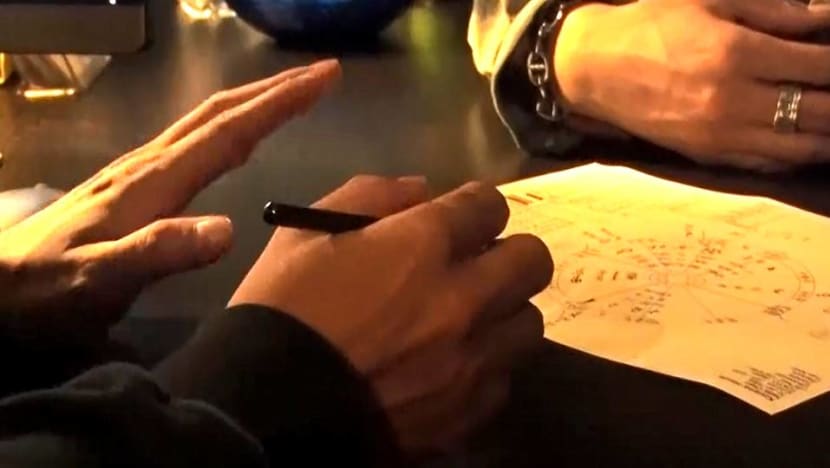
A re-enactment of an astrology reading. (Photo credit: Andrew Wee)
SINGAPORE: If you are an Aries, Cancer or Pisces, you might be rejected for a job in Tiffany’s previous workplace.
Her ex-boss, a Libra, is averse to hiring job seekers from these three astrological signs at his branding consultancy.
“It’s probably to do with the possible friction … that may arise based on their respective characteristics and determined working styles,” she suggests matter-of-factly.
Even outside a recession, when relationships in the workplace can be fraught, using astrology for recruitment purposes opens up a can of worms and is potentially discriminatory. So Tiffany requested anonymity for herself and her former company.
She recalls an ex-colleague wanting to refer an acquaintance, an Aries, for a job in the company several years ago. Her ex-boss joked that he almost did not hire the said ex-colleague herself, who was also an Aries.
He gave her a chance only because she “came recommended by his trusted and favourite employee” then. Her acquaintance, meanwhile, was not invited for an interview.
Tiffany cannot ascertain whether being an Aries was the deal-breaker, but she believes it was “a deciding factor”.
As a Capricorn herself, she was not penalised for her zodiac sign. She thinks incorporating astrology into recruitment considerations is “narrow-minded and silly”, but says her ex-boss is “entitled” to his “selection process” and “preference”.
Hiring should be based on “one’s experience, abilities, strengths, potential, rapport and cultural fit”, she adds. “I’m just amused at the old-school brain for a ‘new-school’ company.”
He is not, however, the only local employer who turns to the stars and other unorthodox practices to help guide hiring decisions, especially in this challenging year.
WRITTEN IN THE STARS?
In a corner of Orchard Plaza, astrologer Andrew Wee, the owner of Horoscope Shop, welcomes a number of corporate clients, including insurers and estate agencies.
It is important for these sales-driven companies to know they are “recruiting someone who can contribute immediately”, the 43-year-old says, citing clients who have even brought a job applicant’s birth chart.
“Sales is the most clear-cut (industry). You can see my astrological predictions have immediate results,” he claims. “It’s not like you’re going to wait five, 10 years before something happens.”
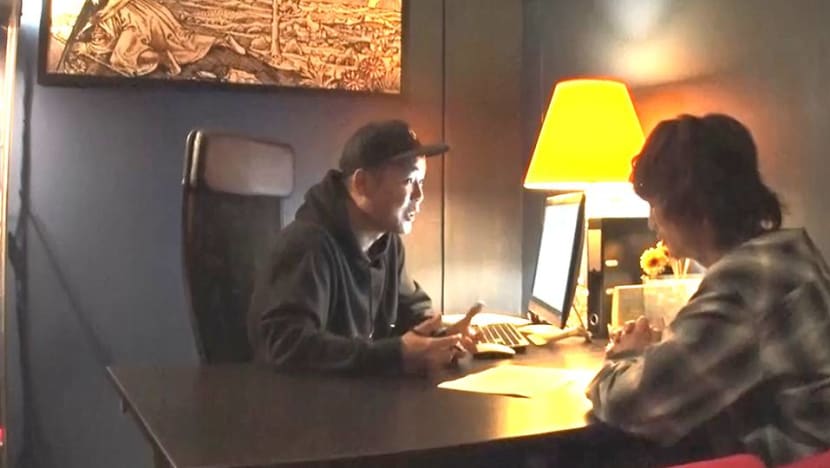
With more clients seeing him during the pandemic, he has already moved to a bigger space in the same building to better accommodate “group readings”, as he has had “more clients come in large groups”.
He makes it clear, however, that his clients do not “come out of the blue and expect (him) to play their HR role”. Many of them have been with him for over 10 years.
Neither does he advise them to hire a candidate based on only their “sun sign” — better known as star sign — without taking a look at their full chart.
Getting someone’s full chart, however, requires their time and place of birth, which might prove tricky to obtain for a job application.
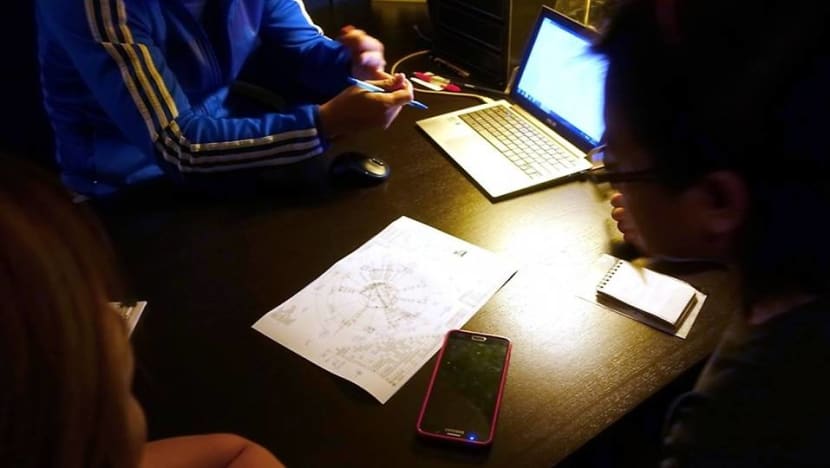
Going by stereotypes alone, it is “quite clear” that Gemini and Sagittarius “don’t get along in the office environment”, according to Wee.
Aquarius and Pisces apparently produce “crazy” creativity due to their “special chemistry”, even though they might not traditionally get along. Leo and Virgo work well as a team too, especially in “marketing and sales”.
Some signs, like Taurus, are “okay with all signs”. They are “quiet, don’t really have an opinion and aren’t in your face”, making for a “peaceful” work environment.
But having a whole team of them is not necessarily a good thing, if there is nobody who “keeps everyone on their toes”.
For many people who are aware of star signs only superficially, astrology is regarded as more woo-woo than woke, and more self-fulfilling prophecy than self-awareness tool.
“(Looking at sun signs alone) is a convenient way to do things, but it’s unfair. You might be born in this sun sign, but you’re absolutely not like that,” says Wee.
“If we were to dissect your whole chart … there’d be a lot more things we can find out.”
Although he provides astrological consultations on corporate decisions, he understands that making such information public might affect a company’s image and reputation, not least because the mysticism in astrology appears to be at odds with Singapore’s pragmatism.
In fact, he is a self-proclaimed “scientific person” and describes astrology as “statistics”, since people have used the stars to tabulate various events for centuries.
“People think astrology is myth and it’s a psychic thing. No, nothing like that. It’s about understanding certain positions (of the planets) and what actually happens,” he says.
But I’m not driven to prove astrology to the world. I prefer people to doubt it. Then it adds value to what I can do.
Being an “open-minded sceptic” keeps his head out of the clouds. He adds: “If you’re a blind believer, then you’re narrow minded.”
TAROT READINGS AND NUMEROLOGY
Astrology is not the only newfangled hiring mechanism making a mark in the corporate world. Alchemy Consultancy Services does tarot readings for companies.
Run by Paul Kek and Renaye Chan, the husband-and-wife team say tarot readings “rely on your subconscious”. For example, an employer who believes someone might not be a good hire would draw tarot cards that reflect the innately right decision.
Some people might find the practice “scary”, Chan notes. So she tells them there is nothing to be afraid of because the cards are just “papers with pictures”.
Alchemy Consultancy also provides feng shui services and numerology consultations, which are popular with its clients because of the company’s “practical” brand of numerology.
“It’s almost like statistics, like studying maths. But the calculations … also forecast what’s happening to you this year, why you feel so irritated or why there’s so much upheaval,” claims Chan, 50.
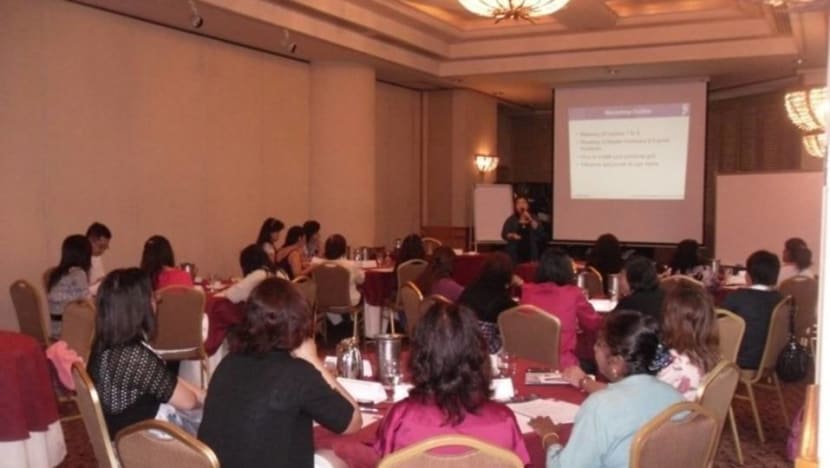
During the “circuit breaker”, Alchemy introduced online sessions. And in the subsequent months, there was “a surge” of requests. A huge reason for this, she says, is that people feel “very stressed” and need more certainty in these turbulent times.
When her clients have hiring dilemmas, she first asks what role the candidate is applying for, and then based on the person’s date of birth, she would analyse “everything from their natural capabilities to their strengths and weaknesses”. With this information, the client can select candidates for interviews.
Numerology can also help companies to “place certain people together in a team”.
However, Chan stresses that numerology does not “force (clients) to make any decision”, but rather shows them the options available. Occasionally it might validate the decision they already plan to make.
“We combine practical methods with a practical suggestion. For example, if you want to start your own business, I’d suggest you attend a workshop with your SkillsFuture credits to learn how to be an entrepreneur,” she says.
The company’s website lists names like the Maritime and Port Authority, HomeTeamNS, the Singapore Management University and DBS Bank.
Another client is Sandy, who works for a beauty brand. While she does not use numerology for recruitment, she does not proceed with other “major work decisions” until she has consulted Alchemy.
She sees numerology as beneficial to staff engagement and helping her team “build confidence”.
“I had a counter manager move into a learning role. She wasn’t sure about the move, but after speaking with Renaye, she knew where she could tap herself at her best,” recounts Sandy, who requested anonymity.
Numerology helps (my staff) understand themselves better. They understand why they behave this way (and) how they should relate to someone. It helps them professionally to handle their job and their bosses.
In this uncertain climate, numerology also gives her “a sense of calm”.
She adds: “As a general manager … whatever you do will affect the sales. How do we attract the right clients and the right level of engagement? How do we do it while best capitalising on our team’s strengths?”
ARRANGING OFFICES AND USING PERSONALITY TESTS
While modern companies may find astrology, tarot reading and numerology too unconventional, geomancy, or feng shui, is broadly more accepted, especially in Asian companies.
Kek, who handles geomancy clients for Alchemy, says they usually seek his services when they are moving or renovating their office and want to “ensure that the layout favours them”.
The 54-year-old cites the case of a client’s office where anyone who sat in one particular corner used to “fall sick” and “leave or quit” after a while without explanation.
Fixing a situation like this might involve converting the place into a pantry, or placing a plant or crystal there to “change the energy”. Occasionally, sitting “more people” at that spot can “turn the energy”.
But he acknowledges: “It’s a bit difficult especially for prime area offices, where every inch is money. If you miss out one square foot, that’s a lot of money you’re paying every month for nothing.”
Then there is the Enneagram personality test, which seems to carry more legitimacy than astrology, numerology or tarot readings. As corporate practices go, it is also more readily used.
Unlike the Myers-Briggs Type Indicator and DISC (dominance, influence, steadiness and conscientiousness) assessment, the Enneagram test focuses on your “world view”, says Cindy Leong, a 34-year-old Enneagram personality trainer with Relationship Studio.
“Most profiling tools, including astrology, tell you what you’re like, which are personality traits. But the Enneagram explains why you’re like that.”
For instance, it may show not only that you can be stubborn, but also what you tend to be stubborn about, as the test focuses on “your core motivation, core needs, core fear and what you’re trying to avoid the most”.
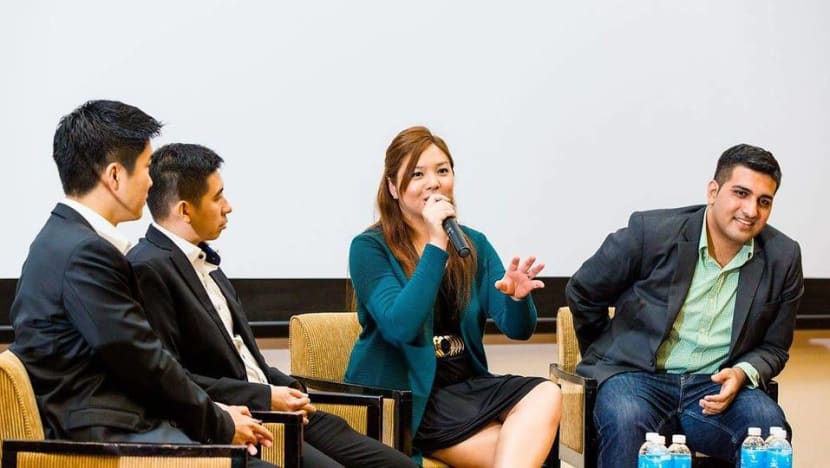
Leong’s classes can be bought using SkillsFuture credits under the Workforce Skills Qualifications. Many of her clients come from the “financial industry” because the turnover rate “tends to be pretty high”, so they want to invest in “the right people”.
“The human resources folk are trained through our programme to sieve out whether someone’s telling the truth through their interview,” she says.
A person’s Enneagram type does not change, she adds. You only increase the “mastery” of your type’s core traits, depending on how supportive your environment is and whether it harnesses your strengths.
She also contrasts astrology, which may encourage not hiring or working with certain star signs, with the aim of an Enneagram test, which is “growth”.
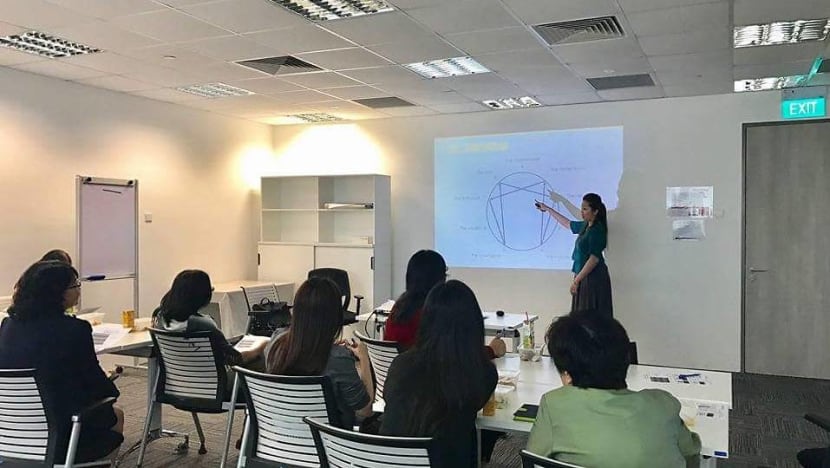
Ultimately, whether unorthodox practices have value depends on the company’s culture, such as whether it is “corporate or towkay”, says ASEAN Human Development Organisation executive director Eddie Lee. But there remains a question mark over some of them.
“If you use a formal test, even a psychometric test, then you can say the person isn’t fit for the organisation. But when you’re talking about astrology and numerology, it’s hard to justify,” he adds.
“We also need to be careful about discrimination.”
He stresses that these tools “shouldn’t be the only qualifying criteria”; rather, they can help companies identify gaps and create diversity in their teams.
But to Chan, the benefit of these tools, however they are tied to broader corporate practices, is largely that they can help the individual to gain self-awareness, which “is equal to power”.
“Once you’re aware, you can adopt certain methods to change, then you’d be able to harmonise your own lifestyle,” she says.















